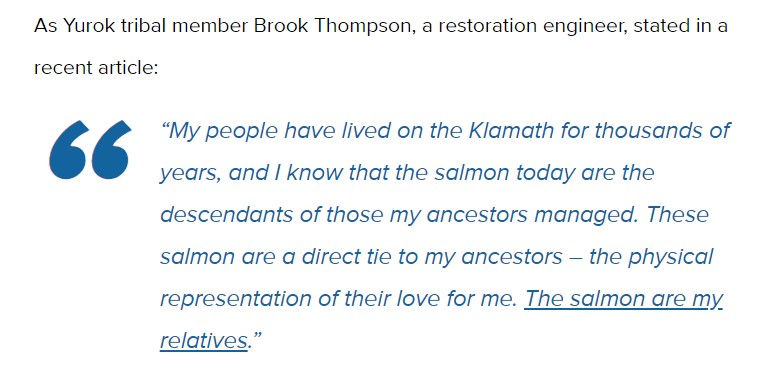- Nov 3, 2023
- 1 min read

Date: October 25th, 2023

Date: October 25th, 2023
Date: September 01, 2023
"Brook Thompson, a Yurok and Karuk Native American civil/environmental activist is fighting for river restoration and restoring the habitat for fish and ecosystems that sustain other wildlife in the Klamath River."

Date: July 13, 2023
Title: Removing Dams from the Klamath River is a Step Toward Justice for Native Americans
by Beth Rose Middleton Manning and Robert Lusardi July 13, 2023